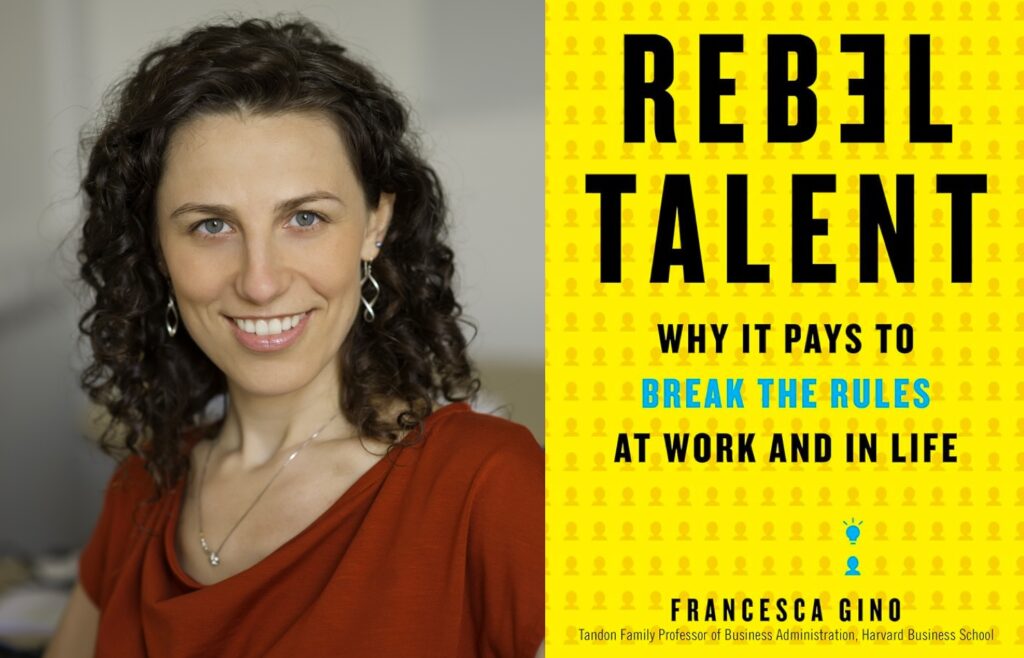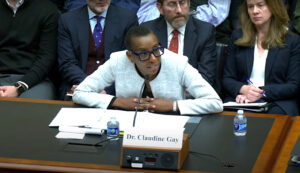Harvard prof, expert on ‘honesty,’ hit with more serious plagiarism charges
A Harvard professor fired for data fraud is facing fresh allegations of plagiarism in her books.
The journal Science reported that an independent investigation of “honesty researcher Francesca…

A Harvard professor fired for data fraud is facing fresh allegations of plagiarism in her books.
The journal Science reported that an independent investigation of “honesty researcher Francesca Gino” has “identified at least 15 additional passages of borrowed text in Gino’s two books, Rebel Talent: Why it Pays to Break the Rules at Work and in Life and Sidetracked: Why Our Decisions Get Derailed, and How We Can Stick to the Plan.”
One victim of the alleged plagiarism told the student newspaper, the Harvard Crimson, that Gino used her words “extensively” without crediting her.
“Gino never reached out to me for permission to use my words and my thoughts, something that high school students do on a regular basis when asking if they can use my articles for their school assignments,” Mari K. Ness said about the book Rebel Talent.
In March, a Harvard internal investigation of Gino found her responsible for the original alleged data fraud, and recommended her termination, said the Wall Street Journal.
The 1,300-page report, which describes how Harvard investigates misconduct, was made public when a federal court ordered the document to be unsealed at the instigation of Harvard, said the Chronicle of Higher Education.
Gino’s attorney argued to keep the report sealed because of the prejudicial effect that the report’s conclusions could have about the former Ivy League professor.
The document relates to a $25 million lawsuit that Gino filed against the university.
The suit claims that “a trio of professors and behavioral scientists (all male)” forced the university to change the rules on academic fraud, aimed “solely” at Gino.
The university then subjected her to “false and defamatory statements,” by leaking the investigation details to the trio of professors, who posted the findings on a blog, said the suit.
In a website dedicated to proclaiming her innocence, Gino called the Harvard investigation “bogus.”
“I absolutely did not commit academic fraud … Once I have the opportunity to prove this in the court of law, with the support of experts I was denied through Harvard’s investigation process, you’ll see why their case is so weak and that these are bogus allegations,” she wrote.
Neither the lawsuit nor the website provide a motive for why the three behavioral scientists would frame bogus allegations about her, beyond the mention of them all being men.
The scientists said they detected that data in four now-retracted papers from Gino had “evidence of data tampering.”
Gino reportedly said during the investigation that a former research assistant, who is now a Boston University professor, had access to the files and might have altered the data because of an altercation she had with Gino.
Ironically, it’s the lawsuit that prompted an independent party to look more deeply into other works by Gino, which turned up the new plagiarism accusations.
University of Montreal psychologist Erinn Acland, who has a background in plagiarism detection, decided to “poke around” after the suit was filed against the all-male behavioral scientists named in the action, said Science.
Acland says she found alleged plagiarism “in the very first sentence of the first work she assessed.”
A review of her plagiarism detection by the journal “confirmed Acland’s findings.”
Plagiarism Today (PT) said the accusations of cribbing other’s works isn’t as serious as the allegations of data fraud. The online magazine said the allegations of data manipulation and the lawsuit are much larger issues.
“However, this story does highlight how academic and research integrity violations rarely happen in a vacuum. Plagiarism, authorship issues, data manipulation and unethical research practices often come in pairs or trios. Where there is one, you can often find another,” said PT.
The magazine noted the plagiarism accusations are similar to those against former Harvard president, Claudine Gay.
Gay, unlike Gino, is still employed by Harvard and has kept her nearly $900,000 salary, though she is no longer president.
According to the court’s docket regarding the Gino suit, a trial date has not been set.
The judge has yet to rule on Harvard’s motion to dismiss the lawsuit.



